
RECASTing racial stress and trauma: Theorizing the healing potential of racial socialization in families.
RE Anderson, HC Stevenson
American Psychologist 74 (1), 63
For youth and adults of color, prolonged exposure to racial discrimination may result in debilitating psychological, behavioral, and health outcomes. Research has suggested that race-based traumatic stress can manifest from direct and vicarious discriminatory racial encounters (DREs) that impact individuals during and after an event. To help their children prepare for and prevent the deleterious consequences of DREs, many parents of color utilize racial socialization (RS), or communication about racialized experiences. Although RS research has illuminated associations between RS and youth well-being indicators (ie, psychosocial, physiological, academic, and identity-related), findings have mainly focused on RS frequency and endorsement in retrospective accounts and not on how RS is transmitted and received, used during in-the-moment encounters, or applied to reduce racial stress and trauma through …
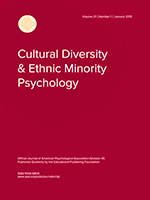
African American emerging adults’ experiences with racial discrimination and drinking habits: The moderating roles of perceived stress.
IW Metzger, T Salami, S Carter, C Halliday-Boykins, RE Anderson, ...
Cultural Diversity and Ethnic Minority Psychology 24 (4), 489
Objectives:
Despite the abundance of research aimed at quantifying the impact of racism on the mental and physical health of African Americans, results remain inconclusive largely because of challenges with operationalization, as well as conflation with the concept of racial discrimination, which may be more readily assessed. The purpose of the current study was to:(a) determine whether racial discrimination had an impact on the degree of alcohol use and binge drinking among African American emerging adults, and if so,(b) determine whether perceived stress linked to racially discriminatory experiences moderated these associations.

What's Race Got to Do With It? Racial Socialization's Contribution to Black Adolescent Coping
RE Anderson, S Jones, N Anyiwo, M McKenny, N Gaylord‐Harden
Journal of Research on Adolescence
While youth generally experience stressors from developmental milestones, Black youth also face racialized stressors. Racial socialization has been found to help Black youth cope with racialized stressors, but research has yet to show its contribution to coping beyond general socialization practices. This study examines how racial socialization contributes beyond that of general coping socialization to coping behaviors. Fifty‐eight third–eighth‐grade (Mage = 11.3, SD = 1.54) youth reported general coping socialization and racial socialization practices and coping behaviors. Results indicate that for engagement coping, racial socialization messages contributed significantly to parent‐provided engaged socialization strategies. Implications are considered for the ways in which Black youth experience stress and require culturally specific practices for successful coping with frequently encountered stressors.

Addressing the Mental Health Needs of Black American Youth and Families: A Case Study from the EMBRace Intervention
RE Anderson, SCT Jones, CC Navarro, MC McKenny, TJ Mehta, ...
International journal of environmental research and public health 15 (5)
Black American youth are vulnerable to the consequences of repeated exposure to racial discrimination, particularly through hampered coping abilities and greater internalizing and externalizing problems. One way in which Black American parents have protected their children from these deleterious consequences is through racial socialization, or communication regarding aspects of racialized experiences and contexts. Less is known, however, about the potential therapeutic benefits of racial socialization via clinical intervention. The five-week Engaging, Managing, and Bonding through Race (EMBRace) racial socialization intervention was developed to enhance coping strategies for parents and adolescents and reduce adolescent internalizing and externalizing problems. The purpose of this study is to describe a case study of one family through a mixed methods approach. Variables of interest included racial …
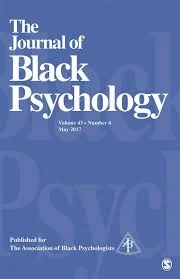
EMBRacing racial stress and trauma: Preliminary feasibility and coping responses of a racial socialization intervention
RE Anderson, M McKenny, A Mitchell, L Koku, HC Stevenson
Journal of Black Psychology 44 (1), 25-46
The goal of this article is to report initial feasibility and coping response data from a pilot study of a new five-session intervention (Engaging, Managing, and Bonding through Race [EMBRace]) for Black families utilizing racial socialization to address stress and trauma from racial encounters. Ten caregiver and youth dyads were enrolled and completed the EMBRace intervention. Feasibility was based on a closed-option survey for therapists as well as open-ended participant responses to program satisfaction post-intervention. Responses to stress management were assessed via repeated measures of self-reported coping strategies throughout the sessions. EMBRace was deemed to be acceptable by the majority of therapists and participants with regard to discussing racial encounters. Participant responses were categorized into five primary codes, including advice, clinician approach, program changes, likes, and …
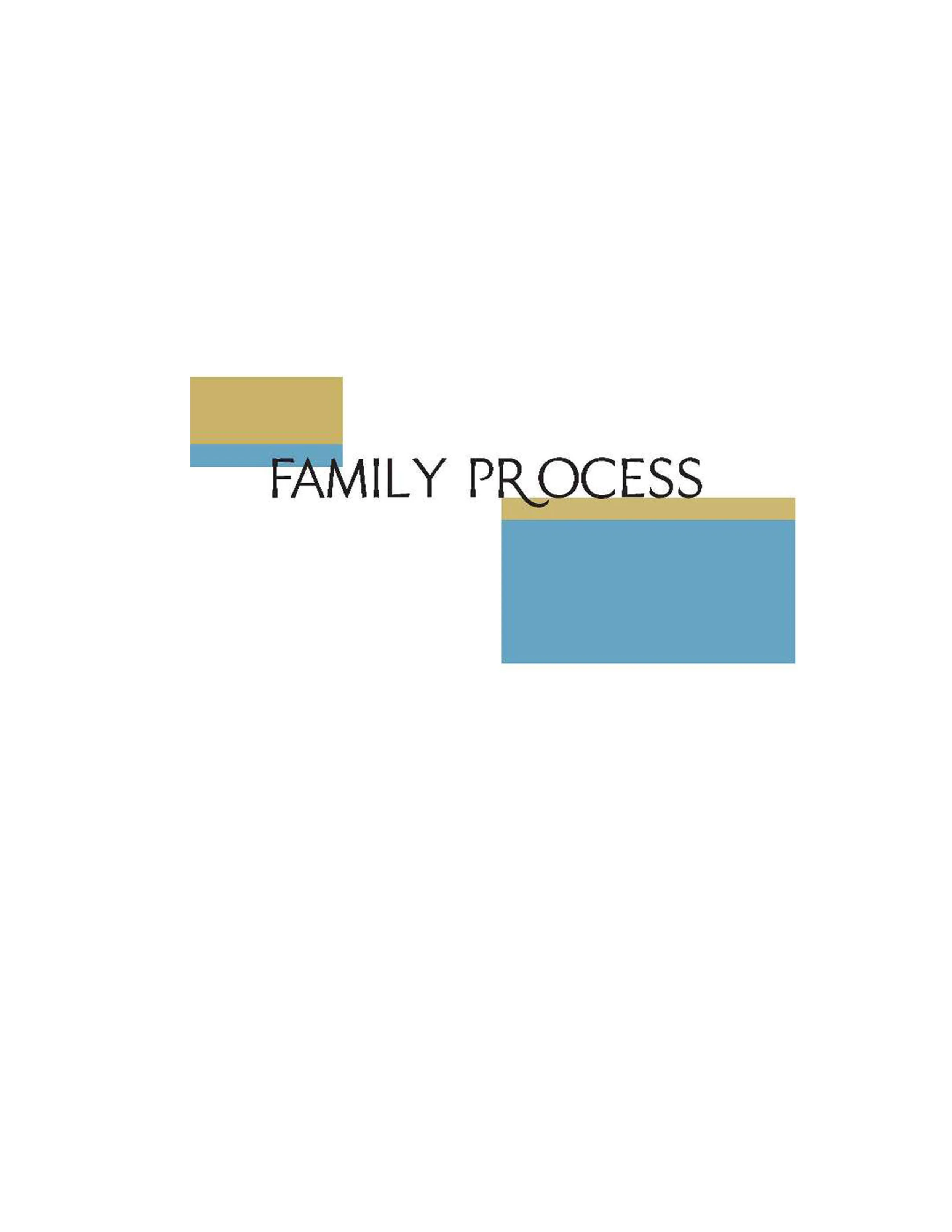
EMBRace: Developing a Racial Socialization Intervention to Reduce Racial Stress and Enhance Racial Coping among Black Parents and Adolescents
RE Anderson, MC McKenny, HC Stevenson
Family Process
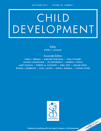
Observed racial socialization and maternal positive emotions in African American mother–adolescent discussions about racial discrimination
MA Smith‐Bynum, RE Anderson, BAL Davis, MG Franco, D English
Child development 87 (6), 1926-1939
This study examined patterns of (a) observed racial socialization messages in dyadic discussions between 111 African American mothers and adolescents (Mage = 15.50) and (b) mothers’ positive emotions displayed during the discussion. Mothers displayed more advocacy on behalf of their adolescents in response to discrimination by a White teacher than to discrimination by a White salesperson. Mothers displayed consistent emotional support of adolescents’ problem solving across both dilemmas but lower warmth in response to the salesperson dilemma. Findings illustrate evidence of the transactional nature of racial socialization when presented with adolescents’ racial dilemmas. The role of adolescent gender in mothers’ observed racial socialization responses is also discussed. A framework for a process‐oriented approach to racial socialization is presented.

And still WE rise: Parent–child relationships, resilience, and school readiness in low-income urban Black families.
RE Anderson
Journal of Family Psychology 32 (1), 60
The Family Stress Model acknowledges forms of resilience in the face of hardship; however, few studies have emerged on the potentially positive role of familial relationships in the academic, psychological, and prosocial success of impoverished Black children. The current study evaluates how parent–child relationship conflict and financial stress are associated with children’s school readiness (ie, academic, psychosocial, and socioemotional indicators). Latent profile analyses, incorporating financial stress, general stress, and parent–child relationship variables were used to test whether varying family stress profiles differentially predicted children’s school readiness in Black families with children entering kindergarten (N= 292). Findings revealed 4 latent classifications with profiles of low, moderate, moderate/high, and high/moderate stress and conflict variables, respectively. Whereas the low-profile was associated …

Communities/Neighbors and Families in the United States
RE Anderson
Encyclopedia of Family Studies, 1-9
The changing historical and cultural landscape of families in the United States has largely impacted and been impacted by shifts in neighborhoods and communities. World War II brought about significant change for family life, neighborhood mobility, and community functioning. As a result, economic and subsequently psychosocial disparities became evident within families, particularly as a result of continuous socioeconomic disadvantage, concentrated poverty, and generational transmission. Communities, neighborhoods, and families continue to change over time; thus, the interrelation of these factors will bring new meaning to each independently as US society encounters changing demographics, neighborhood preference, and family compositions.

Positive psychology in African Americans
JS Mattis, NG Simpson, W Powell, RE Anderson, LR Kimbro, JH Mattis
Positive psychology in racial and ethnic groups: Theory, research, and practice
The extant literature on the positive psychological development of African Americans is sparse, and the literature that does exist is generally ahistorical and acontextual. In our overview of scholarship on positive outcomes among African Americans, we take an interdisciplinary approach combining perspectives from cultural studies, gender studies, sociology, anthropology, and political science. We seek to account for how culture and socio political context may change the way that we understand virtues and strengths. We conclude by noting the need for a positive psychology that imagines positive constructs not exclusively as elements of personal character but as cultural, historical, and sociopolitical constructs that are deployed in complex ways by African Americans. http://dx. doi. org/10.1037/14799 005

Pathways to pain: Racial discrimination and relations between parental functioning and child psychosocial well-being
RE Anderson, SB Hussain, MN Wilson, DS Shaw, TJ Dishion, JL Williams
Journal of Black Psychology 41 (6), 491-512
The relationship between racial discrimination, parental functioning, and child adjustment is not well understood. The goal of the present study was to assess parental reports of discrimination in relation to depression and parenting practices, as well as on subsequent child internalizing and externalizing problems in low-income Black families. Data include a subsample of the Early Steps project, a multisite longitudinal study of financial and behaviorally at-risk families. Structural equation modeling was used to analyze our hypothesized model. Excellent model fit was established after removing externalizing problems from the model. As predicted, indirect associations were found from discrimination to parental depression, parenting, and child internalizing problems; and direct associations were found from discrimination to child internalizing problems. The results are consistent with findings suggesting that …
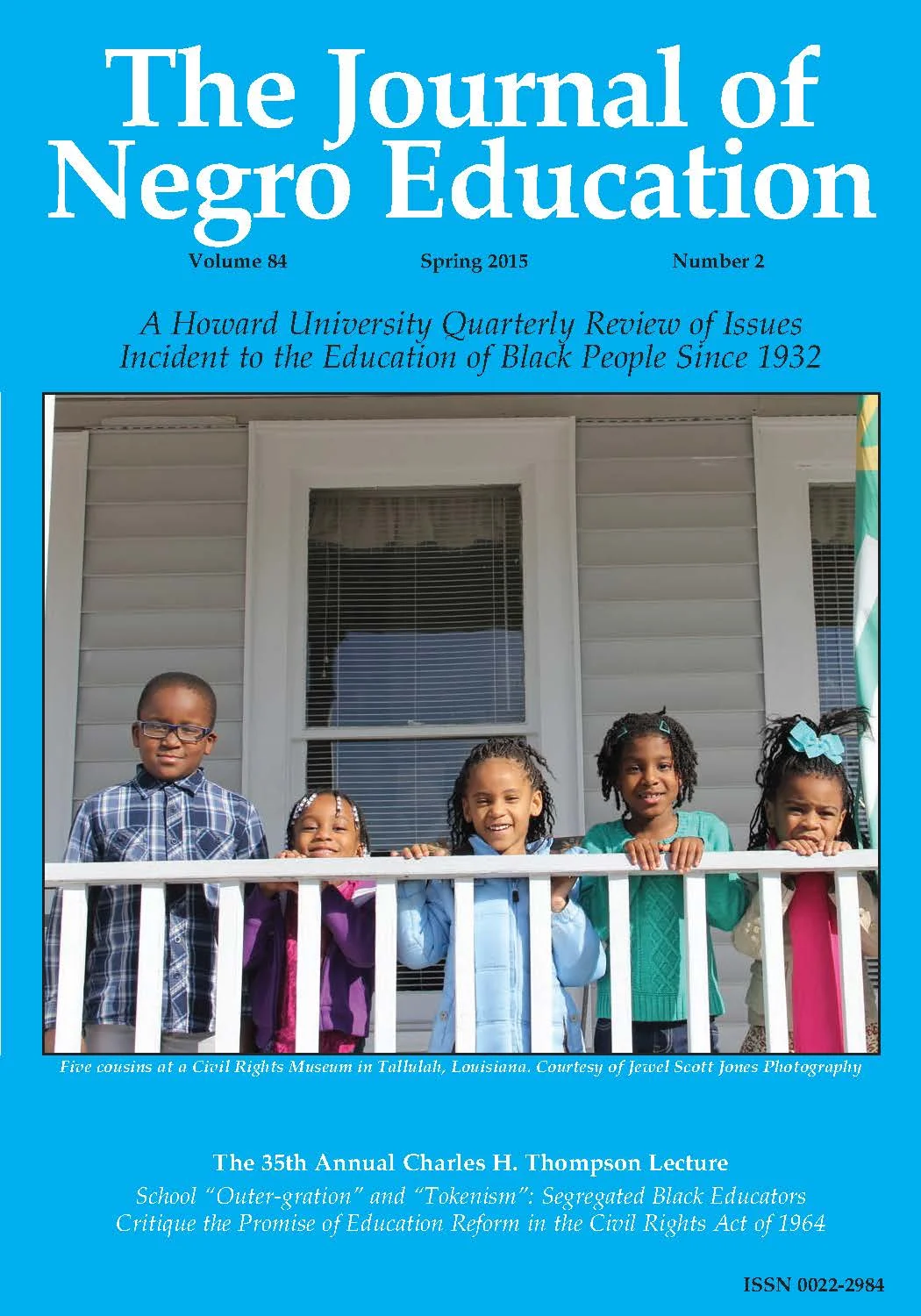
Focusing on Family: Parent–Child Relationships and School Readiness among Economically Impoverished Black Children
RE Anderson
Given the empirical links between familial characteristics and children’s academic performance, this study examined associations between stress, relationship quality, and young children’s school readiness (i.e., academic, psychosocial, and socioemotional characteristics) for economically impoverished Black families (N = 127). Parents reported low levels of financial stress, which were unrelated to children’s school readiness. Parents’ general stress levels were significantly related to both parent and teacher reports of children’s psychosocial problems, however, the direction of effect differed (e.g., positive versus negative, respectively). Additionally, parents’ report of parent–child relationship had significant bearing on children’s psychosocial and socioemotional readiness. Findings highlight the importance of parent–child relationships in impoverished Black children’s behavioral functioning at school entry and …

Ethnic identity and positive youth development in adolescent males: A culturally integrated approach
JL Williams, RE Anderson, AG Francois, S Hussain, PH Tolan
Applied Developmental Science 18 (2), 110-122
The present study examined the relation between ethnic identity and indicators of positive youth development (PYD) in a sample of low-income, urban Black and Latino male youth (N = 254; 66% Black, mean age = 14). Using structural equation modeling, a two-factor model of PYD and ethnic identity was found to provide the best fit to the data with a significant, positive relation between the two factors. At age 14, PYD was positively related to concurrent involvement in prosocial activities, and negatively related to criminal and externalizing behaviors; ethnic identity was related to lower levels of internalizing symptoms. The PYD factor was also related to higher prosocial activity involvement and lower criminal offending at age 15. The findings suggest that male Black and Latino teens living in urban poverty have intrapersonal competencies that promote healthy outcomes and that integration of culturally-relevant factors …
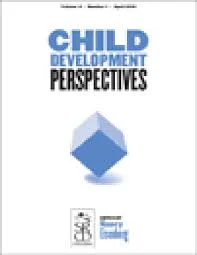
Integrating racial and ethnic identity research into developmental understanding of adolescents
JL Williams, PH Tolan, MI Durkee, AG Francois, RE Anderson
Child Development Perspectives 6 (3), 304-311
This article calls for a fuller integration of racial and ethnic identity (REI) as a fundamental topic of developmental research. Reviewing common, youth‐focused models of REI, it suggests the need for understanding the underlying assumptions of each when undertaking research in this domain. It then proposes that youth development research will be enhanced by further testing of the relation of REI to developmental progress in other dimensions of youth's identity and by developmentally conceptualized testing that incorporates social‐ecological perspectives. Relevant findings from studies of adolescents are used throughout to support these contentions. The article argues that new directions can promote the integration of REI research into the mainstream and inform the supports that bolster resilience for youth.

The role of ethnic identity in interventions to promote positive adolescent development
JL Hill, GA Mance, RE Anderson, EP Smith
Glob J Community Psychol Pract 2 (3), 1-12
This paper addresses the role of ethnic identity in child development. We report on two school-based interventions with a focus on strengthening the ethnic identity of girls, one with a Hispanic population and one with an African American population. We also report on a study investigating whether parental ethnic identity plays a mediating role in African American parenting styles. The results of each study were non-significant in relation to their specific hypotheses regarding ethnic identity. We discuss the implications of these non-significant findings, particularly given that the two interventions were conducted in minority-majority communities.

Happy birthday Trayvon: The link between discrimination and child psychosocial outcomes
Anderson, R. (2013). The Rookie, SPSSI Student Newsletter, Spring2013, 8-9.
On February 5, 2013, I thought about Trayvon Martin. After all, it would have been his 18th birthday, so it was only appropriate. But it was not just a day to consider his life; rather, his death and its impact on families. As a researcher in a cultural and family studies laboratory, I think about the “Trayvons” of our society constantly. It was his untimely death that led my colleague, Saida Hussain, and me to consider the effects of discrimination on processes within low-income Black families. After developing a theory based on existing research, we found using a statistical model that discrimination reported by parents has a direct and indirect effect on children. In cases like the shooting of Trayvon, children may perceive community-level exper

The role of discrimination in parental depression and child emotional problems among low-income Black families
RE Anderson, SB Hussain
CYF News | May 2014
Riana Elyse Anderson Saida B. Hussain Depression can be a debilitating experience for those facing the symptoms associated with the diagnosis. Although the literature primarily focuses on the individual’s experience with depression, recent studies have helped to elucidate the impact of depressed parents on family systems (Brenner & Salovey, 1997; Silk, Shaw, Forbes, Lane, & Kovacs, 2006). In addition to symptomatology associated with depression (eg, loss of appetite, lack of sleep, low mood, etc.), maternal depression—particularly as a result of economic hardship—has been associated with poorer parenting practices (Arellano, Harvey, & Thakar, 2012; McLoyd, 1990). While various stressors impact parents from all walks of life, culturally specific stressors (eg, discrimination) may additively and negatively be associated with parental well-being (Lee & Ahn, 2013). Although a growing body of research has investigated the associations between discrimination, maternal depression and child psychosocial well-being (McNeil, McKoy, Brantley, Fincham, & Beach, 2013; Simons et al., 2002), few studies have provided a comprehensive approach to understanding mechanisms by which children, especially ethnic-minority youth, can be influenced by their parent’s depression.
















